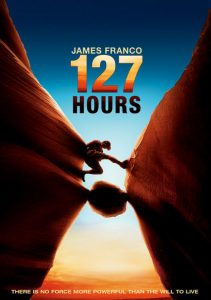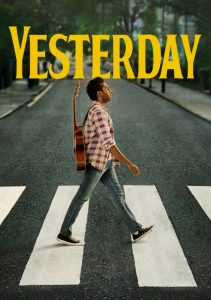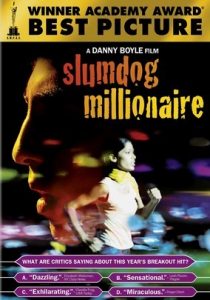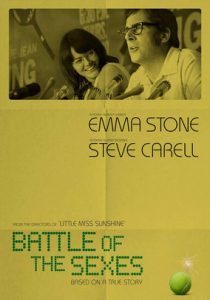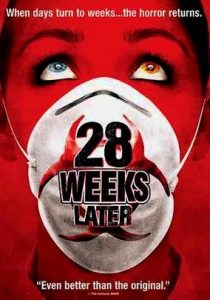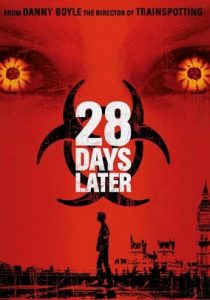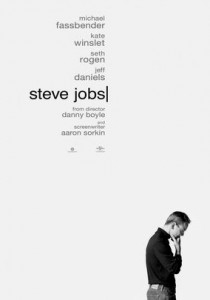28 Years Later-2025
Director Danny Boyle
Starring Jodie Comer, Aaron Taylor-Johnson, Alfie Williams
Scott’s Review #1,496
Reviewed October 13, 2025
Grade: B
For loyal fans of the 28 Days Later film franchise, launched in 2002, 28 Years Later (2025) may be a disappointment.
Not what I expected, the film has less raw horror than its two predecessors, but it adds a deeper emotional connection, linking various characters together.
A family is introduced, which helps provide character depth. Apparently, 28 Years Later is the first of a new trilogy, which may leave the first two installments by the wayside.
Still, the film is uneven and meanders quite a bit until the final thirty minutes or so, when I felt more invested in the events.
This is surprising, given the participation of Academy Award-winning participants, including director Danny Boyle, writer Alex Garland, and actor Cillian Murphy, as Executive Producer. It also features the original cinematographer (Anthony Dod Mantle), so I’m surprised how little connection it has to the original.
A weak sub-plot featuring Sir Jimmy Crystal, the leader of the Jimmy Savile–inspired “Jimmy” cult, and a survivor of the original outbreak is the only connection.
It’s been almost three decades since the rage virus escaped a biological weapons laboratory, and now, still in a heavily enforced quarantine, some have found ways to exist amidst the infected.
One group of survivors lives on a small island connected to the mainland by a single, heavily defended causeway.
When Spike (Alfie Williams), the twelve-year-old son of Jamie and Isla (Aaron Taylor-Johnson and Jodie Comer), leaves the island on a mission to find help for his ailing mum, he discovers secrets, wonders, and horrors that have mutated not only the infected but also other survivors.
He encounters characters like “Samson”, a physically imposing Alpha leader of the infected, the odd Dr Ian Kelson (Ralph Fiennes), a former doctor and survivor of the outbreak, and a pregnant infected woman.
Isla, who teeters in and out of sanity, is along for the ride.
Comer, known for the television series Killing Eve (2018-2022), has begun to forge her way into feature films and is the standout performer.
Isla suffers from a mentally debilitating disease, but it’s unclear what the issue is. She mostly lies in bed, sleeping or suffering from excruciating headaches. It’s not until the final act that Comer’s work is stellar.
When she becomes attached to a healthy newborn baby, her emotional connection to Spike and her memories of time spent with her father are linked.
These are the best scenes, and when Comer shines brightly. She is aided by the inclusion of Fiennes as the sympathetic doctor.
This proves that superior actors can make any film better as long as they infuse their talents into the script, which Comer and Fiennes do. They have tremendous chemistry during their limited scenes, offering humane and tender moments. Young Williams also does good work.
The cinematography is impressive. Lavish outdoorsy sequences in meadows or amidst a raging fire are lucid and colorful. An abandoned train set is dressed perfectly with dingy seats overgrown with plants and weeds. When the characters race through the aisles, there’s a realism to the scene.
The rest of the film has issues, especially weak subplots.
There’s a bit too much going on, so the result feels messy. Visions, memories, Jamie cheats on Isla while Spike watches, Spike pulls a knife on dad, the alpha is on the loose, a mysterious doctor, a fire, and other such additions are included.
Some work better than others.
A hunting expedition where Jamie teaches Spike to hunt is superfluous and clichéd. Doesn’t almost every post-apocalyptic film or television show feature someone showing someone else how to hunt?
The film also feels remarkably similar to television’s The Walking Dead or The Last of Us, suggesting that the filmmakers may have been riding a trend rather than creating their own original work.
Why make the father sympathetic, then non-sympathetic? Is it a way to enhance Isla’s and Spike’s bond?
The same occurs later when a kind Swedish soldier (Edvin Ryding) debuts, only to become unlikable minutes later. Is this to justify his head being torn from his body? An incredible scene by the way.
28 Years Later (2025) has some impressive story and technical tidbits, marginally giving it a recommendation for fans of the franchise. Otherwise, there isn’t enough quality content to entice new viewers.

